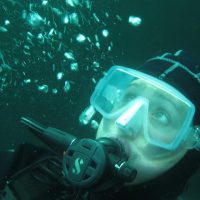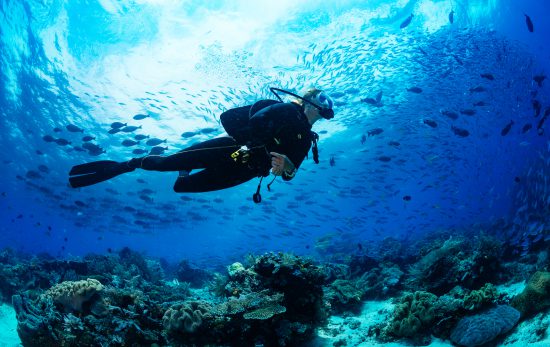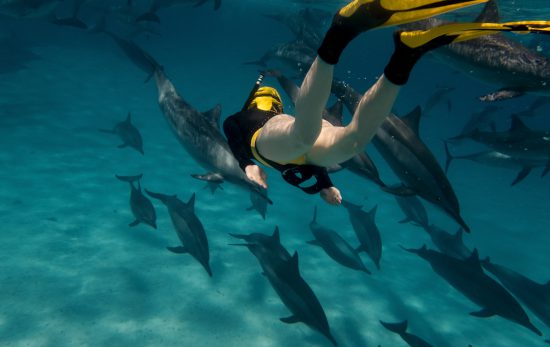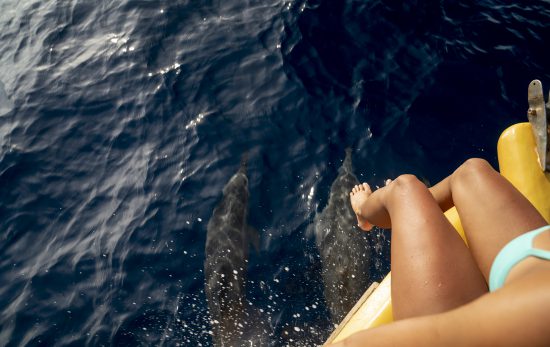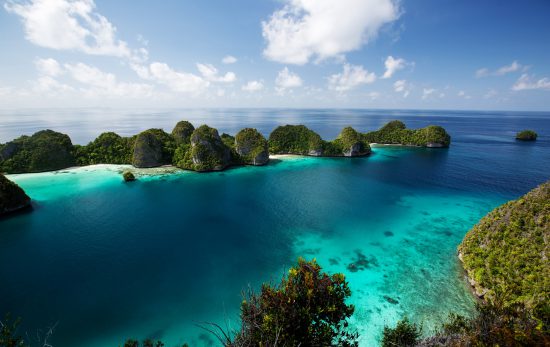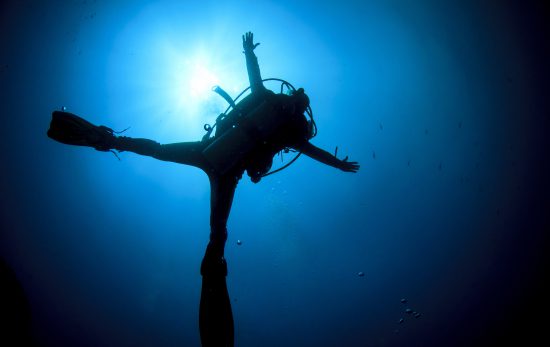With every drop of water we drink, and every breath we take we are physically connected to the ocean. Water flows through nature and is directed to us via human ingenuity. The carbon dioxide we exhale is converted to oxygen by the algae within corals. Our relationship to the ocean is crucial because, without it, we simply would not exist!
As a species we are realising that our interaction with our environment is critical. Environmental psychologists, sociologists and anthropologists are studying the various ways that humans interact with water. How do we, as divers, relate to our oceans?
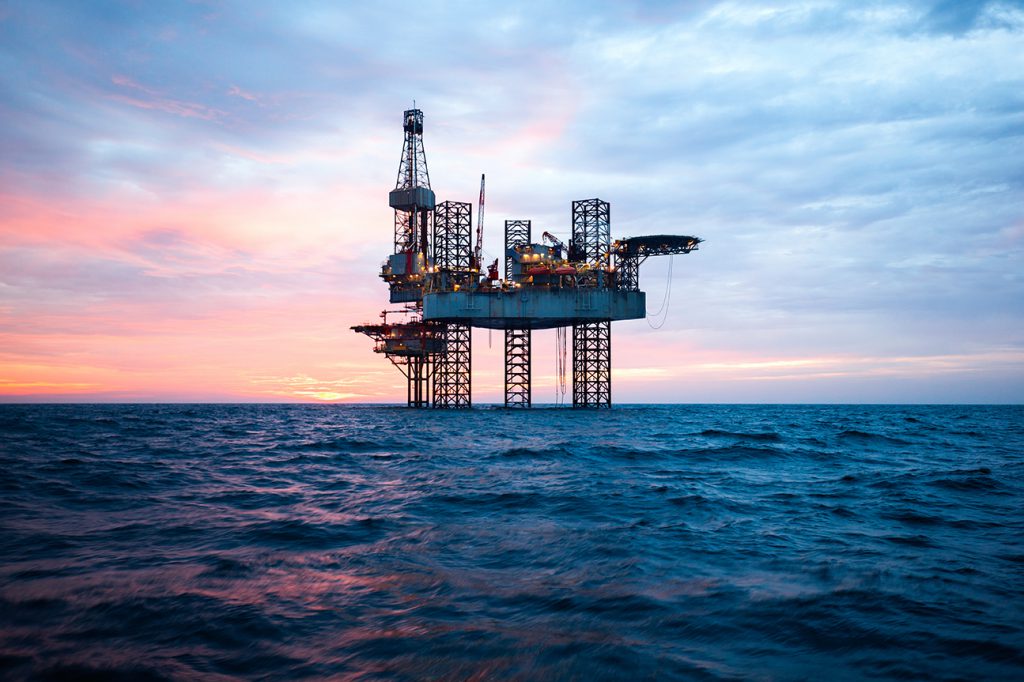
Human industry and activity
Clothing, food production, farming, manufacturing, fishing, transport … all human industries have a single common feature. Water! Water is essential for growing plants and animals, for making packaging and as a habitat. Management of water supply has changed the surface of the earth, through damns, diversions and reservoirs.
One way or another, our waste flows to the oceans. In some cases, the products themselves are washed directly down our drains (e.g. cleaning products, personal hygiene, beauty and sunscreen). Our ability to make the things we want has lead to increasingly disposable items, including single-use.
Humans rely on water for most of activities, and we are discovering that taking water and returning waste is not sustainable. Around the world local farming and fishing communities are coming into direct contact with these issues, and many are taking action. The need to feed and clothe people also drives initiatives to care for the oceans. Divers can help.
Diver behaviour
As divers we see what is happening below the surface and this puts us all in a privileged position. We can share what we see. Simply by posting our photos on social media and talking to our friends about our passion for the underwater world, we can make a difference. Did you know you can easily leave reports about the dive site on the Dive Against Debris app?
However, is also possible for our behaviour to cause damage to the ocean habitat. Poor buoyancy control or finning can directly impact on the dive site. A moment of carelessness can destroy hundreds of years of coral growth in some species. Sadly, there have even been recorded incidents of intentional vandalism or destruction. Feeding or touching marine creatures can change their habits and may affect their health.
What makes divers do this? Human behaviour is complex, and such actions need to be considered in the context of cultural influences, group dynamics and individual attitudes, beliefs and motivation. Research on diver behaviour is beginning to answer questions and offer suggestions for how we, as divers can protect what we love. Green Fins offers tips for divers and supports dive centres to care for our dive sites. We can all improve our skills.
Marine tourism
Ecotourism is becoming increasingly popular. People travel all over the world to learn about different environments. It is possible to take courses in coral habitats and participate in restoration projects, or collecting data on specific species of marine life. In some places, the way that local communities interact with marine creatures has attracted tourism, altering the financial drivers on human activity. Being informed means we can choose which organisations we support.
Human interaction with the ocean environment is important, and all of our actions have an impact. By understanding how our behaviour affects the oceans, and how the ocean affects us, we can be more aware of the consequences of our actions. Our choices, even the small ones, make a difference.
AUTHOR BIO:
Dr Laura Walton is a Clinical Psychologist and PADI IDC Staff Instructor with a fascination for the psychology of diving. Visit scubapsyche to learn more about our behaviour as divers.
